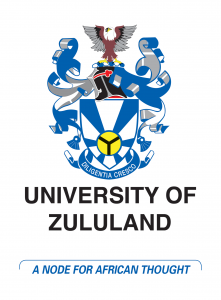The recent African Thought Forum Series webinar saw a robust discussion taking place on the pros and cons of black economic empowerment (BEE).
From the discourse, it was evident that although BEE was developed with the best intentions, its policies still require revisiting and amendment in order to fulfil their purpose.
The event was organised as part of the Vice-Chancellor’s Webinar Series. Professor Xoliswa Mtose, UNIZULU Vice-Chancellor, explained that “the series was conceived as an important tool to transform the university into a public deliberation”. Scientists, philosophers and distinguished members of society will thus be invited to share their wisdom and help the university community to engage in imaginary scenarios in search for answers to society’s questions.
This particular event was hosted by the Faculty of Commerce, Administration and Law (FCAL). Gary Magomola, Chairman of Thamaga Holdings and Director and Chairman of Audit Committee of Global Asset Management, was invited to decipher the subject matter. The respondents were Professor Irrshad Kaseeram and Prof Dev Tewari, both from FCAL.
Magomola approached the topic from a historic point of view, looking at the economic history of South Africa and the impact of the concept of black economic empowerment during and post-apartheid. He described these two periods as phase one and phase two, respectively.
He discussed the three pillars of the apartheid government which affected the rise of the cores of black economic empowerment. These were the Influx Control Act, designed to limit the access black people had to what was known at the time as “white areas”; the Group Areas Act, which designated residential areas according to racial classification; and the Job Reservations Act, which prevented black people from training for and occupying certain positions.
He noted that amid these restrictions, there were many successful and inspiring black entrepreneurs who played a major role in the economy at the time. These were people such as the late Richard Maponya. These business owners then organised themselves into local chambers which later formed the National African Chamber of Commerce (Nafcoc). The body became a catalyst for the emergence of organised black business and later transformed into a business activist and advocacy group. The organisation soon had a national footprint.
“In the late 1970s, Nafcoc created the first black-owned supermarket of scale. Later the organisation created a sizeable construction company that was instrumental in civil and construction activities. The foresight of Nafcoc had led to the creation of the first black-owned bank in South Africa, African Bank. It took almost ten years to raise one million rands- just one million rand- to allow for the registration of the bank,” Magomola said.
In his view, the second phase of BEE is fraught with problems such as misalignment of skills. There are many cases where BEE participants have benefitted from opportunities in areas outside of their competence, which hindered the process of transformation.
He concluded by saying that BEE was now “an insignificant tool” to promote the participation of black business in meaningful ways to the country’s economic activities. He was also adamant that the biggest downfall of BEE is tenderpreneurship. “The rise of this form of business operators has thrown a cloud of negativity into the process of transforming the procurement landscape,” he said.
Responding to the talk, Prof Tewari was convinced that the BEE period of the apartheid era was indeed more effective. He highlighted that simply giving economic incentives is not good enough. The plausible solution, according to him, is having literacy around economics for the previously disadvantaged population group. There also needs to be a BEE strategy to move the “have-nots to the haves”.
The second respondent, Prof Kaseeram said after considering Magomola’s thoughts on the first and second phases of BEE, he aspires to see a third phase where the country’s economy will be driven mainly by the private sector. “We have 48% of the economy controlled by the private sector and 42% by the government. We all know the government is not in the business of profit maximisation so that is going to create major problems for the economy,” he noted.
He also mentioned that he would love to see the third phase characterised by a union of small, medium and large enterprises as well as previously disadvantaged businesses with previously advantaged businesses.
- Naledi Hlefane
Caption
Economics expert Gary Magomola was recently invited by UNIZULU to share his views on the topic of black economic empowerment.
- August 31, 2021

